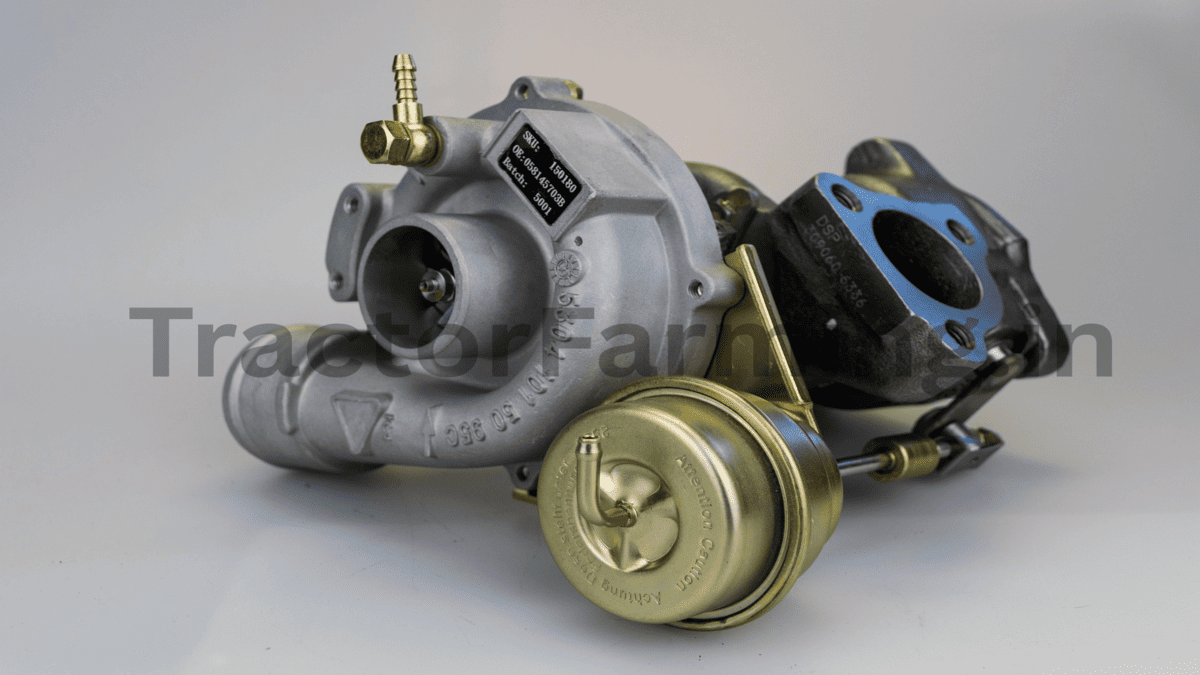Tractor Maintenance in Monsoon: Protect Your Tractor During the Rainy Season

The Indian monsoon brings green fields but also challenges for farm machinery. Heavy rain and humidity can cause rust on metal parts, wash away grease, and even seep into the engine oil Left unchecked, moisture can trigger electrical shorts, corrode battery terminals, and lead to costly breakdowns. In fact, many tractor accidents in India occur in the rainy season due to slippery fields and neglected upkeep.Regular tractor maintenance in monsoon is therefore essential to keep your machine running safely and avoid unscheduled repairs.
General Monsoon Maintenance Tips for Tractors
- Inspect for Rust and Corrosion. Before heavy rains, walk around the tractor and look for any rust spots or peeling paint. Clean and dry these areas, then apply grease or anti-rust spray to protect them. Humid, wet conditions can quickly corrode unprotected metal, so even new machines benefit from a quick spray of rust-inhibitor on exposed parts.
- Maintain Lubrication. Rain can wash away grease from moving parts. Check oil, hydraulic fluid, brake and clutch reservoirs, and replenish as needed. Use a high-quality, water-resistant grease on fittings, joints and bearings. (Tractor experts recommend watching for “milky” or brown oil, which means water has mixed in – this signals a leak or gasket problem that needs fixing.) Well-lubricated steering, clutch and brake linkages reduce wear and help prevent failures in wet conditions
- Clean the Tractor. Wash off mud, debris and crop residue after fieldwork. Mud left on the tractor traps moisture and speeds up rusting. A clean, dry tractor is easier to inspect and maintain, so make cleaning part of your routine. Removing dirt also prevents clogged radiators or filters that could cause engine overheating or stalls during the season.
- Check Electrical System and Battery. Inspect all wiring, lights and switches. Tighten any loose connections and coat terminals with light grease or silicone dielectric grease to keep out moisture. A wet spark plug wire or corroded battery terminal can make the tractor hard to start or run poorly. If the tractor will sit idle, consider removing the battery and keeping it in a dry place. Otherwise, keep it fully charged (floating on a trickle charger if possible) and check the fluid level. This prevents battery damage from humidity.
- Inspect Tires and Brakes. Proper tire care is critical when fields are slippery. Ensure tires are inflated to the correct pressure and that treads are not worn out. Muddy soil can cause slippage if tires are under-inflated or smooth. Also check that lug nuts are tight and there are no leaks at the valve stems. Test the brakes and adjust them if needed, since good brakes prevent skids in wet conditions. In general, healthy tires and reliable brakes help avoid accidents in the rain.
- Use Protective Covers and Storage. When not in use, park your tractor under shelter or use a water-resistant cover. Keeping the tractor dry whenever possible prevents water from pooling on seats, dashboard, and engine covers. Even a simple heavy canvas or plastic tarp (tucked under the wheels) can keep rain off vital components. Store the tractor on higher ground if you can (avoid parking in puddles or on wet grass). Many farmers also spray exposed metal with anti-rust spray or wax before the monsoon. These precautions greatly reduce corrosion.
- Regular Servicing and Checks. Finally, stick to the service schedule. If your tractor has been sitting unused during the dry season, get it checked at a workshop or by a mechanic before heavy rain begins. A professional can test fluids, filters and key parts that might not be obvious. As one expert advises, preventive upkeep is worth the effort – “it is better to spend some preventive time rather than have a breakdown in the middle of your work”. Well-maintained machines work more efficiently and need far fewer repairs, so routine servicing pays off.
Caring for New Tractors
Even brand-new tractors need protection during monsoon. Follow the manufacturer’s break-in and service instructions, but add these practical steps:
- Keep it dry and clean. Remove any protective films or residue from new paint to avoid trapping moisture.
- Use the same checks as above. Don’t assume “new” means “maintenance-free.” Check the oil, coolant and filters as soon as the rains start.
- Protect electronics. Many modern tractors have ECU modules or display panels that should be kept dry. Cover instrument clusters if the tractor is parked outside.
- Warranty mindful. Stick to the maintenance schedule to keep warranty valid. Even a new tractor’s warranty can be voided if flood or neglect causes damage.
By caring for a new tractor now, you ensure it runs at full power all season and keeps its resale value.
Caring for Old Tractors
Older tractors often need extra attention in the rain. Years of use can leave wear on seals, hoses, and painted surfaces.
- Check for more rust. Old machines may already have chipped paint or dings. Touch up these spots with paint or rust proofing to stop them spreading.
- Replace worn parts. Inspect fan belts, hoses, filters and cables; replace any that look cracked or rotten. Old rubber parts let in water or fail when stressed by mud.
- Be extra vigilant with oil and filters. Older engines might burn oil or have leaky gaskets. Change the oil and filters right before the rains, and watch for any signs of coolant mixing with oil.
- Battery and starter. Old batteries can struggle in damp weather. Keep them fully charged, clean the terminals, and test the starting system.
- Brakes and steering. Wear in an old tractor’s brake bands or steering linkages can be dangerous on slick fields. Check and adjust these systems thoroughly.
In summary, old tractors need the same routine checks, but more frequently. Cleaning and lubricating worn parts prevents small issues from becoming breakdowns. As one tractor care guide notes, a little preventive time now saves big problems later.
Caring for Mini Tractors in Monsoon
Mini tractors (15–25 HP) are popular with smallholders in India, but they face the same rainy season hazards. Treat them just like larger tractors, with a few notes:
- Smaller scale, same rules. All the general tips above apply. Keep the mini tractor clean, dry, and lubricated. Narrow tires on mini tractors can sink more easily in mud, so extra tire pressure checks are important.
- Cover the cabin and controls. If your mini tractor has an open or simple cab, use a rainproof cloth or plastic sheet to cover the seat and dashboard overnight. Even a family size umbrella secured over the driver’s seat can help!
- Lightweight advantage. A key benefit of mini tractors is they can be stored in small sheds or even under a tree canopy. Use that to your advantage. Parking the machine off the ground keeps water out of radiators or exhausts.
- Watts Up Mini-lands. Many mini tractors have simple electrical systems. Still, check wiring and fuses, and keep a dry rag in the toolbox to wipe any moisture from connectors.
For mini tractor care in India, farmers find that covering these little workhorses and keeping them cleaned after rainy drives makes them last. They may be small, but a mini tractor still deserves big protection from the rains!
Conclusion: Keep Your Tractor Safe and Productive
Monsoon tractor maintenance is not a luxury – it’s essential for a smooth planting season. By cleaning, lubricating, and protecting your tractor now, you avoid expensive repairs and unsafe breakdowns later. Remember that routine checks prevent rust, engine issues, and electrical failures. A well-cared-for tractor will not only serve your farm reliably through the rains, it will have a longer overall life. Don’t wait for trouble – inspect your tractor before the next downpour, apply anti-rust spray and grease, and park it under cover if you can.
Your tractor is one of your most valuable farming tools. A few minutes of monsoon maintenance today can save hours and rupees tomorrow. Stay safe in the fields, and keep your trusty tractor running strong all season long!







